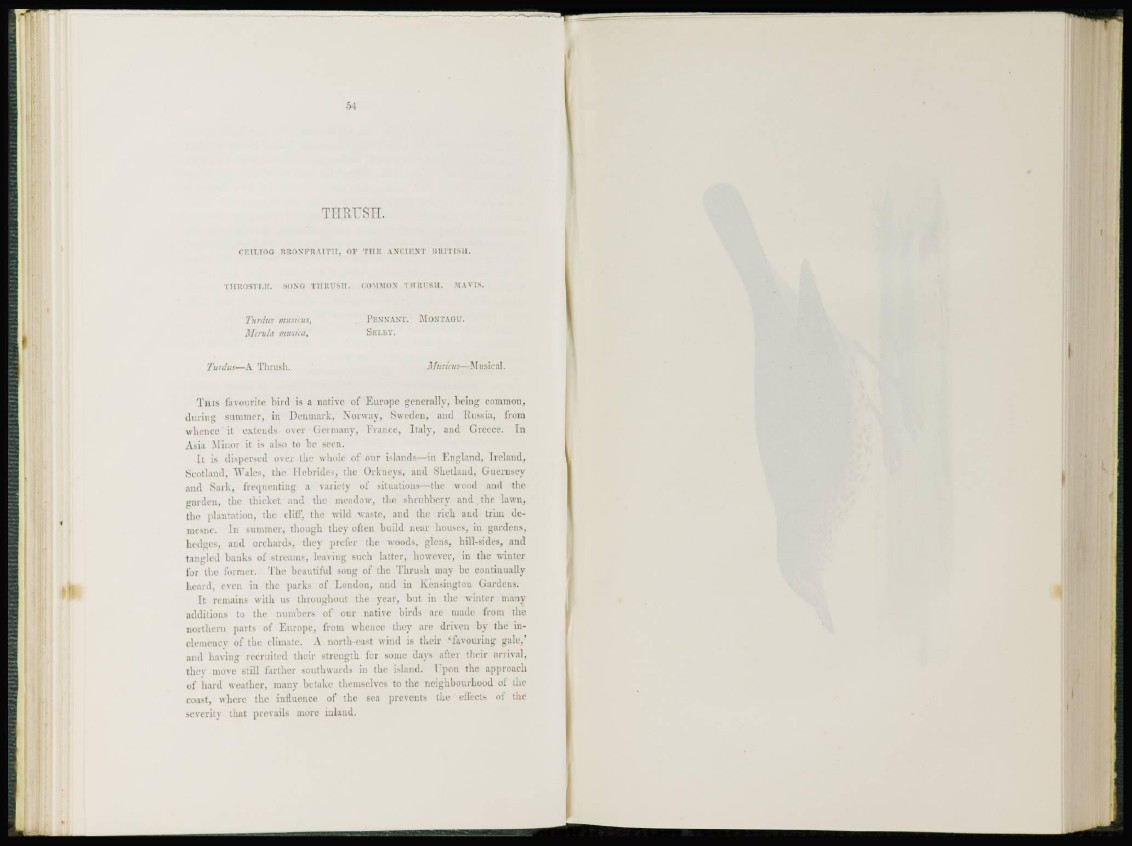
T H R U S H .
OBILIOO BRONFRAITII, OF THE ANCIENT BRITISH.
THROSTLE. SONG THRUSH. COMMON THRUSH. MAVIS.
Turd us musirus, PENNANT. MONTAGU.
Mcrula musica, SELBY,
Tutdus—A T h r u s h . Musuus—Musical.
T H I S favourite bird is a native of Europe generally, being common,
during summer, in Denmark, Norway, Sweden, and Russia, from
whence it extends over Germany, France, Italy, and Greece. In
Asia Minor it is also to be seen.
I t is dispersed over the whole of our islands—in England, Ireland.
Scotland, Wales, the Hebrides, the Orkneys, and Shetland, Guernsey
and Sark, frequenting a variety of situations—the wood and the
garden, the thicket and the meadow, the shrubbery and. the lawn,
the plantation, the cliff, the wild waste, and the rich and trim demesne.
In summer, though they often build near houses, in gardens,
hedges, and orchards, they prefer the woods, glens, hill-sides, and
tangled banks of streams, leaving such latter, however, in the winter
for the former. The beautiful song of the Thrush may be continually
heard, even in the parks of London, cind in Kensington Gardens.
It remains with us throughout the year, hut in the winter many
additions to the numbers of our native birds are made from the
northern parts of Europe, from whence they are driven by the inclemency
of the climate. A north-east wind is their 'favouring gale,'
and having recruited their strength for some days after their arrival,
they move still farther southwards in the island. Upon the approach
of hard weather, many betake themselves to the neighbourhood of the
coast, where the influence of the sea prevents the effects of the
severity that prevails more inland.